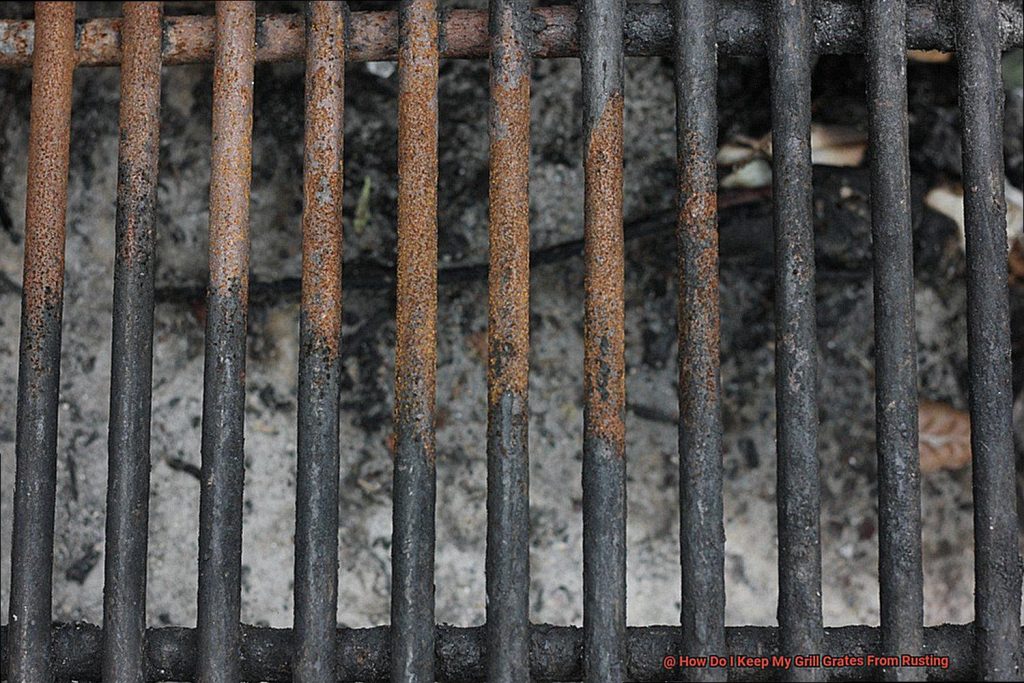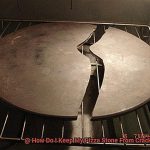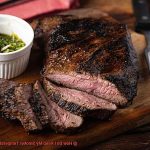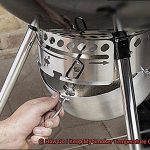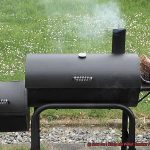Summer is here, and that means it’s time to fire up the grill and get cooking. But as any grill enthusiast knows, rusty grates can quickly put a damper on your outdoor feast. The good news? You don’t have to suffer through rusted-out grates. With a little bit of know-how and elbow grease, you can keep your grill grates looking and working like new.
Rust is the enemy of any grill master. It’s caused by moisture and oxygen, which means leaving your grates outside in the rain or high humidity will lead to rust formation. But fear not. There are several simple steps you can take to prevent rust from taking hold.
In this blog post, we’ll cover everything you need to know about keeping your grill grates rust-free. We’ll talk about proper cleaning techniques, essential tools and materials for maintaining your grates, and even some clever hacks (like using cooking oil) to protect the surface from rust. We’ll also go over common mistakes to avoid when cleaning your grates, so you can keep them in top-notch condition for many summers to come.
Whether you’re a seasoned pitmaster or just starting out with your first grill, this guide has got you covered. So sit back, relax, and get ready to learn how to keep those grates shiny and rust-free.
Contents
Step One: Clean the Grates Regularly
Neglecting this crucial step can lead to rust and corrosion, which not only ruins the appearance of your grill but also affects the taste and quality of the food you cook. Don’t let that happen to you. Follow these simple steps to ensure your grill grates remain in tip-top condition.
Step One: Heat Things Up
To clean your grates properly, start by heating up your grill. This will loosen any food particles stuck on the grates, making them easier to remove. Plus, it’s a great excuse to fire up your grill, even if you’re not cooking just yet.
Step Two: Brush It Off
Use a wire brush specifically designed for grill grates to scrape off any remaining debris. Be sure to scrub the grates thoroughly, paying extra attention to any areas where food may have stuck. A wire brush is essential for removing even the most stubborn bits of food and grease.
Step Three: Wipe It Down
After cleaning the grates with a wire brush, wipe them down with a damp cloth or paper towel to remove any remaining debris. You can also use a mild detergent or grill cleaner for deeper cleaning, but be sure to rinse thoroughly afterward to avoid leaving any residue on the grates.
But why is it so important to clean your grill grates regularly? Let’s break it down:
Prevent Rust and Corrosion
Neglected grates accumulate grease, food particles, and other debris that can lead to rust and corrosion. By regularly cleaning your grates, you remove this buildup and prevent rust from forming.
Ensure Even Cooking
When there is debris on your grates, it can cause hot spots and cold spots on your grill surface, resulting in uneven cooking. Cleaning your grates ensures that your food cooks evenly and thoroughly.
Avoid Sticking
Debris on your grates can cause your food to stick, making it difficult to flip or remove from the grill. Cleaning your grates ensures that your food doesn’t stick to the surface and cooks perfectly every time.
In addition to regular cleaning, applying a thin coat of oil to your grates after cleaning can also prevent rust and corrosion. This creates a barrier that prevents moisture from coming into contact with the metal surface. You can use any cooking oil such as vegetable oil, canola oil, or even olive oil to do this.
Step Two: Apply a Thin Coat of Oil to the Grates
Grilling is a beloved pastime for many, but we all know that the key to a delicious cookout is a well-maintained grill. One important step in maintaining your grill is applying a thin coat of oil to the grates.
Before applying any oil, ensure that your grates are clean. Use a wire brush or grill scraper to remove any debris or leftover food particles. Once the grates are clean, it’s time to apply the oil. You can choose from different types of oils such as vegetable oil, canola oil, and even olive oil, depending on your preference.
Apply the oil sparingly using a paper towel or cloth – remember that a little goes a long way. Make sure you cover the entire surface of each grate with a light layer of oil. The goal is to protect the grates from moisture and prevent rusting over time.
After applying the oil, let it sit for a few minutes to soak in before lighting up your grill. It’s essential to wait until your grates are cool before applying any oil to avoid causing it to smoke and burn off quickly, which can be dangerous.
In summary, here are the sub-topics and tips for applying a thin coat of oil to your grill grates:
- Clean your grates thoroughly before applying any oil
- Choose the type of oil that suits your preference (vegetable, canola, olive)
- Apply the oil sparingly using a paper towel or cloth
- Cover the entire surface of each grate with a light layer of oil
- Let it sit for a few minutes before lighting up your grill
- Remember to wait until your grates are cool before applying any oil
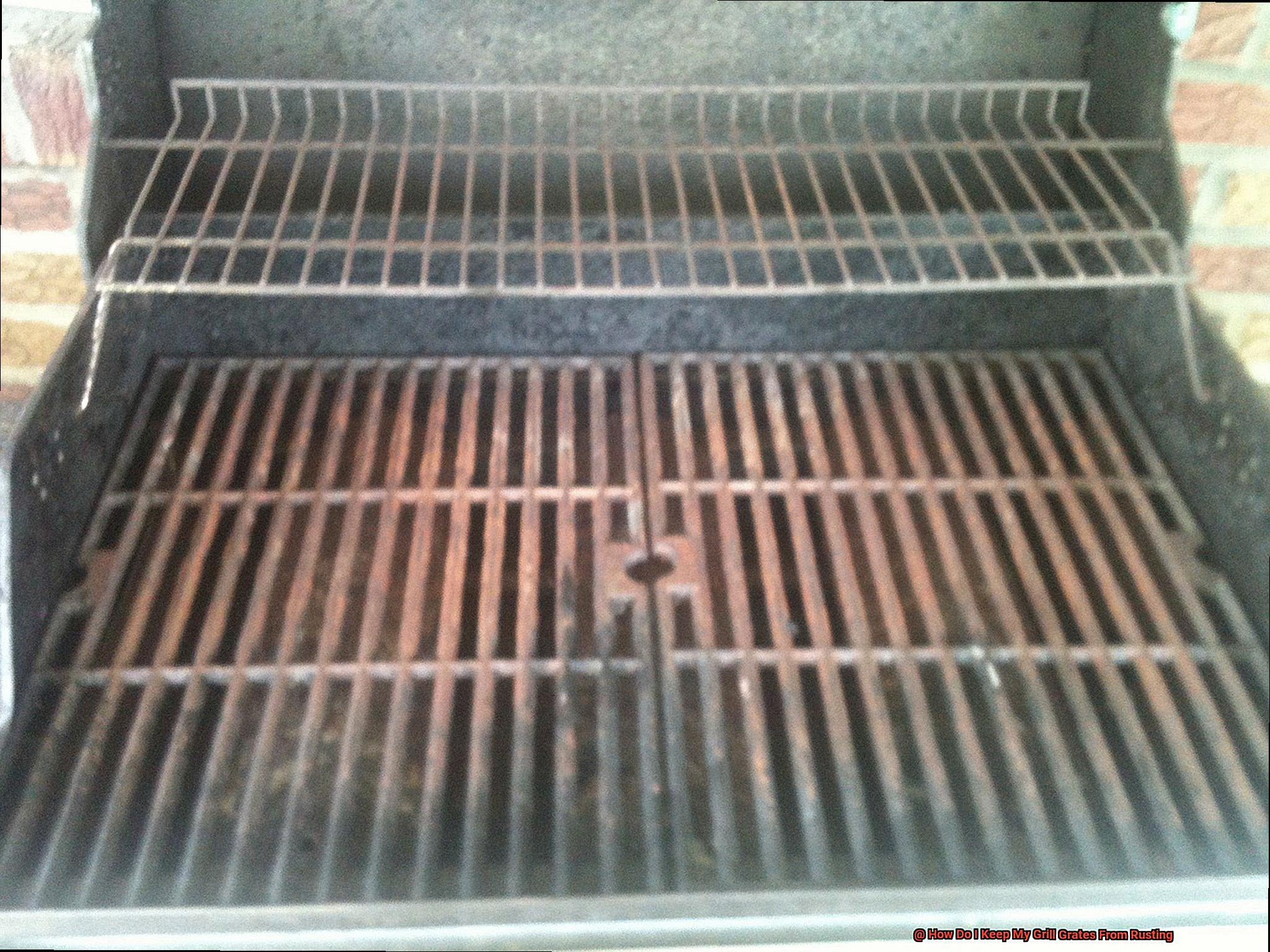
Step Three: Use Rust-Resistant Materials for Your Grates
Then let’s talk about Step Three: using rust-resistant materials for your grates.
Think about it – your grill grates are the foundation of your outdoor cooking experience. They withstand high temperatures, support heavy meats and vegetables, and impart those beautiful sear marks we all love. But if your grates are rusty, they can harm the flavor of your food and even be hazardous to your health. That’s why choosing rust-resistant materials for your grates is crucial.
Let’s explore some options:
- Stainless Steel Grates – This material is a popular choice for its low-maintenance and long-lasting properties. However, not all stainless steel is created equal. Grates made of 304 or 316 stainless steel contain higher levels of chromium and nickel, which provide superior rust resistance.
- Cast Iron Grates – If you’re seeking that perfect sear on your meats, cast iron grates are the way to go. They retain heat exceptionally well, but require more maintenance than stainless steel grates. Seasoning them with oil regularly and avoiding harsh cleaning methods will help prevent rusting.
- Porcelain-Coated Grates – These grates are made of steel or cast iron that is coated in a layer of porcelain enamel, providing excellent rust protection while still maintaining heat retention.
- Ceramic Grates – Made of high-quality ceramic materials, ceramic grates are extremely durable and resistant to rust. The downside is that they tend to be more expensive than other options.
Remember, choosing the right material is only half the battle. Properly caring for your grates is just as essential to prevent rust from forming and extend their lifespan. Regular cleaning and seasoning will do wonders for keeping your grates in top condition.
Step Four: Act Quickly to Remove Any Signs of Rust
Calling all grill masters. Are you noticing some pesky rust starting to form on your grill grates? Fear not – step four is here to save the day. Acting quickly to remove any signs of rust is crucial to prevent it from taking hold on your grill grates. The longer you wait, the harder it will be to get rid of it completely.
One of the best ways to remove rust is by using a wire brush or grill brush with stiff bristles. Start by heating up your grill to a high temperature, which will make it easier to remove the rust. Then, use the brush to scrub away any rust spots. It’s essential to use a back-and-forth motion to ensure that you get all the rust off the grates.
If you prefer a more natural approach, white vinegar mixed with water can also do wonders. Mix equal parts of vinegar and water in a spray bottle and spray the solution onto the rusty areas of the grates. Let it sit for about 30 minutes before using a wire brush to scrub away the rust spots.
However, it’s important to note that these methods won’t prevent rust from forming in the future. To keep your grill grates in top shape, follow these additional steps: Clean your grill regularly, dry it thoroughly after each use, and store it in a dry place. By doing so, you’ll be able to enjoy delicious grilled meals without worrying about rust taking hold on your grill grates.
To summarize, here are the steps:
- Act quickly by removing any signs of rust.
- Use a wire brush or grill brush with stiff bristles.
- Heat up your grill to a high temperature and scrub away any rust spots.
- Use white vinegar as an alternative option.
- Clean your grill regularly, dry it thoroughly after each use, and store it in a dry place.
Tips for Maintaining Your Grill Grates
Grilling is a beloved pastime for many, but it’s important to take good care of your grill grates to ensure they remain in excellent condition. One of the most common problems with grill grates is rusting, which can not only affect the taste of your food but also make your grill look unappealing. In this article, we’ll explore some tips for maintaining your grill grates and preventing rust from forming.
Regular Cleaning
Cleaning your grill grates after each use is essential to prevent rust from forming. Use a stiff wire brush or scraper to remove any debris and then wash the grates with soap and water. Make sure to dry them thoroughly before storing the grill to avoid any moisture buildup.
Oiling Your Grates
Applying a thin coat of oil to your grill grates can help create a barrier between the metal and any moisture that may be present. This can help prevent rust from forming and also make it easier to clean your grates in the future. Simply dip a paper towel or cloth in cooking oil and rub it over the grates evenly.
Investing in High-Quality Grates
Consider investing in high-quality grill grates made from materials that are less likely to rust, such as stainless steel or cast iron. While these options may be more expensive, they will last longer and require less maintenance over time.
Storing Your Grill in a Dry Place
Leaving your grill grates outside in harsh weather conditions can cause rust to form quickly. Instead, remove them from your grill and store them in a dry location, such as in a shed or garage. Consider using a grill cover to protect it from moisture and dust.
Salvaging Rusty Grates
If you notice any signs of rust on your grill grates, don’t panic. You can still salvage them by using a wire brush to remove any loose rust and then applying a coat of high-heat paint specifically designed for grills. This can help prevent further rusting and extend the life of your grates.
Common Causes of Rust on Grill Grates
Grilling is an art that requires the right tools and equipment. One of the most critical tools is the grill grates, responsible for holding your food and searing it to perfection. Rust on grill grates is a common problem that can not only be unsightly but also pose health hazards. So, what are the common causes of rust on grill grates?
The first culprit is moisture. Exposure to water for an extended period can cause the iron or steel on the grates to oxidize and form rust. Rainy days or cleaning your grill with water and failing to dry it off properly can lead to rust spots on your grill grates.
The second cause of rust formation is lack of maintenance. Failing to clean your grill regularly can cause food particles and grease to accumulate on the grates, leading to corrosion and rust over time.
Thirdly, when grill grates are left exposed to air, they can quickly rust. Oxygen in the air reacts with the iron or steel of the grates, causing them to oxidize and form rust. Thus, storing your grill outdoors or in a damp area can lead to rust formation on your grill grates.
Using harsh cleaning products on your grill grates is another major contributor to rust formation. Some cleaning agents contain chemicals that corrode the metal and weaken its protective layer, making it vulnerable to rust.
Finally, low-quality grates are more prone to rusting compared to high-quality ones. Cheap or poorly constructed grates may not withstand exposure to heat and moisture, leading to rust formation.
Understanding these common causes of rust on grill grates is crucial in preventing this problem from occurring. Regularly cleaning your grill grates, storing your grill in a dry place, investing in high-quality grates, and avoiding harsh cleaning products can extend their lifespan and keep them rust-free for years to come.
Benefits of Keeping Your Grill Grates Rust-Free
Are you tired of dealing with rusty grill grates that ruin the flavor of your food and pose health risks? Well, we have some fantastic news for you. By keeping your grill grates rust-free, you can enjoy a plethora of benefits that will elevate your grilling game to the next level.
First and foremost, let’s talk about taste. We all know that the mouth-watering flavor of grilled food is what makes it so special. However, rust on your grill grates can ruin that delicious taste by adding a metallic flavor to your food. Keeping your grill grates rust-free ensures that your food retains its natural flavor, enhancing the overall taste of your dishes.
But taste is just the beginning. Rust on your grill grates can weaken their structure, leading to faster breakdowns and costly replacements. By keeping them rust-free, you can increase their durability, prolonging their lifespan and saving you money in the long run.
Cleaning your grill grates is also a critical aspect of grilling, and rusty surfaces can be a nightmare to clean. The rust can become caked on, requiring heavy scrubbing and ruining your post-grilling bliss. Fortunately, keeping your grill grates rust-free makes cleaning a breeze, saving you time and effort.
Last but certainly not least, rusty grill grates pose health hazards by introducing harmful bacteria into your food. Keeping them rust-free ensures that your food is cooked safely and free from contamination, making it healthier for you and your loved ones.
Conclusion
In summary, maintaining rust-free grill grates is a must for any BBQ enthusiast who wants to savor the flavors of outdoor cooking safely. Rust not only ruins the taste and quality of your food but also poses health hazards and can lead to costly replacements. But fear not. With proper upkeep and attention, you can easily prevent rust from taking over your grill grates.
The key steps to keeping your grill grates in top shape include regular cleaning, applying a thin coat of oil, using rust-resistant materials for your grates, acting quickly to remove any signs of rust, and understanding the common causes of rust formation. By following these tips, you’ll extend the life span of your grates and elevate your BBQ game to new heights.
The benefits of maintaining rust-free grill grates are plentiful. You’ll enjoy more flavorful food that retains its natural taste, increase the durability of your grates, save time and effort when cleaning them, and ensure that your food is cooked safely without harmful bacteria.
So don’t let rusty grates ruin your summer cookouts. Armed with some know-how and elbow grease, you can keep those grates looking new and functioning optimally for many summers to come.

